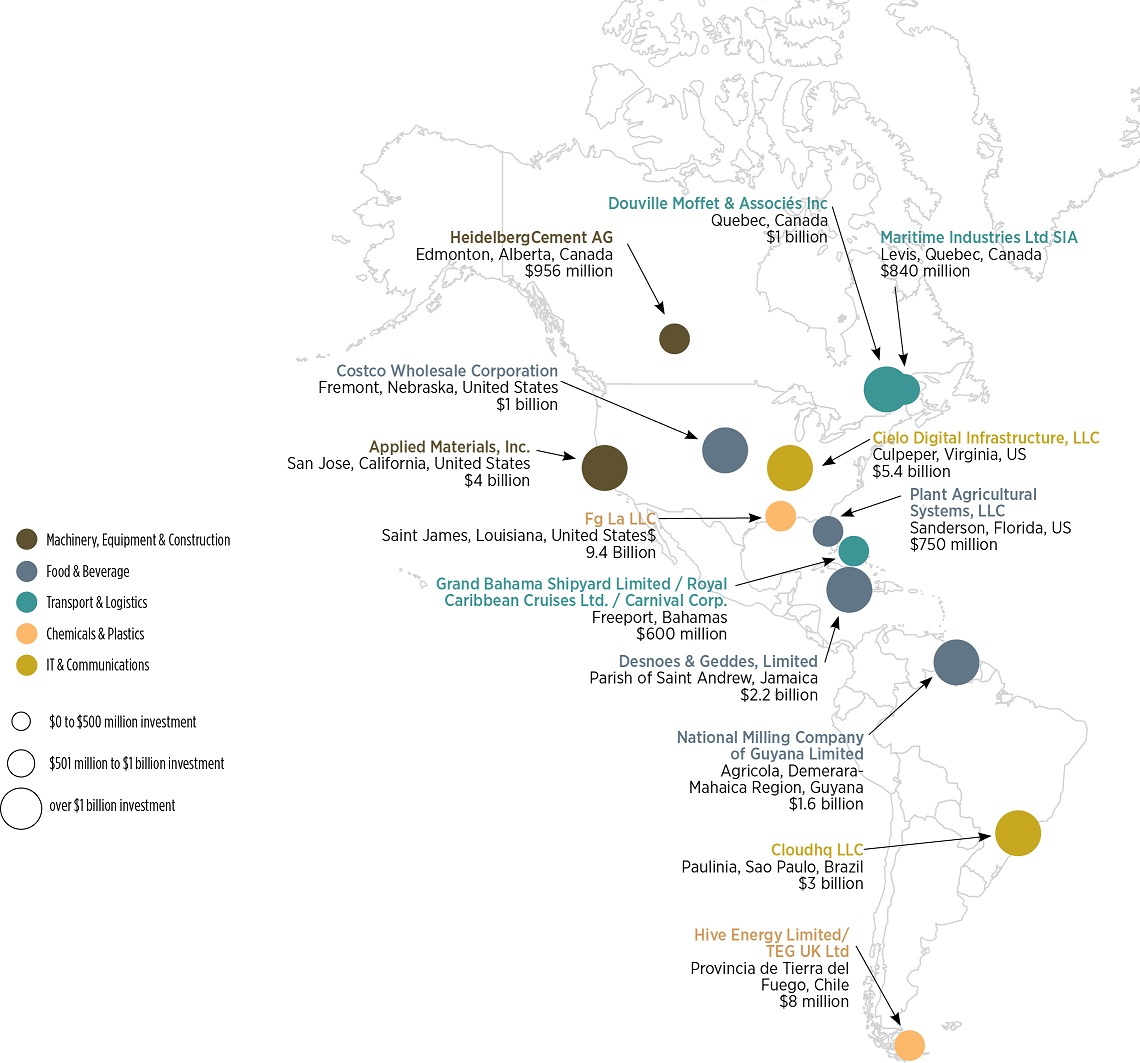Senior living projects impact the greater housing demand
%20copy.jpg)
18 Mar 2024
Access to housing is a challenging theme in communities throughout the United States. Housing shortages exist for nearly all demographics and age brackets. The State of the Nation’s Housing 2023, a report published by the Joint Center for Housing Studies of Harvard University, indicates major barriers exist, regardless of price point, for homebuyers to afford their targeted residence.
The situation for senior housing is no different. Individuals and couples seeking places to retire or needing health services are having difficulties finding those places. Creating a greater supply of senior living offers hope for those entering the silver years and many more segments of the population.
“In the absence of senior-focused communities, the greater housing demand may experience strains, as elderly residents compete for the same housing resources as other age groups,” said Katie Perry, chief operating officer/senior vice president with Knute Nelson. “The support of senior housing is essential for maintaining a balanced and sustainable housing market that caters to the community’s diverse needs.”
Great River Energy and its member-owner cooperatives are involved in supporting two projects in Greater Minnesota that outline the possibilities to address the general housing market through senior living.
Crystal Brook Senior Living
Residents of Park Rapids, Minnesota, have been served by the 143,000-square-foot assisted living/health care facility Crystal Brook Senior Living since 2018. Operated by Knute Nelson, a 501(c)(3) nonprofit leader in senior housing and health care in Minnesota, the state-of-the-art facility includes 69 congregate/independent living and assisted living units, with an additional 19 memory care assisted living units. Demand for the health care services provided by Knute Nelson continues to grow in the region surrounding Park Rapids, with a recent market study demonstrating a net demand for 36 new memory care units needed in this area by 2027. With an overall occupancy rate of 99%, it became clear to Knute Nelson and KI Developers of Park Rapids that an expansion was necessary. In response, the group broke ground in June 2023 on a 17,714-square-foot addition to Crystal Brook to establish a new 20-unit memory care household on the campus. The expansion is estimated to be completed in the spring of 2024.
“Crystal Brook staff adopt a holistic approach to care, emphasizing residents' independence and choices while ensuring their safety,” Perry said. “The Town Center, a central hub of Crystal Brook, enriches residents' lives with sought-after amenities, including a restaurant, club room, conference room, fitness center, screened-in porch, community room and expansive outdoor spaces for various activities.”
Great River Energy and Itasca-Mantrap Cooperative Electric Association are proud to support this project, dating back to Crystal Brook’s original construction in 2017. Great River Energy helped Itasca-Mantrap secure $1.71 million in 0% interest gap financing to support the original construction of this facility on land that Itasca-Mantrap had previously set aside for just this sort of development. The funding came in the form of $1.36 million in USDA Rural Economic Development Loan and Grant (REDLG) program financing via Itasca-Mantrap and a $350,000 E3 commercial financing loan from Great River Energy.
Five years later, when the facility was poised for expansion, building cost increases and rising interest rates created significant challenges. Itasca-Mantrap stepped in again to help secure $2.36 million in USDA REDLG financing and Great River Energy approved a second E3 loan of $350,000, all at 0% interest. Bremer Bank is the lead lender on the project.
“Phase II of Crystal Brook marks an exciting expansion to enhance its capacity to serve 38 individuals with dementia or other forms of memory loss, offering specialized assisted living services within the nurturing environment,” Perry said. “The thoughtful design prioritizes comfort and spaciousness, with common areas dedicated to living, activity and dining.”
Boka Haven Assisted Living
On Oct. 30, East Central Energy (ECE) celebrated the groundbreaking of Boka Haven in North Branch, Minnesota, a multimillion-dollar project to construct a new 24,000-square-foot, 40-unit senior living facility. The project is expected to create more than 25 new full-time jobs when construction is anticipated to be completed in July 2024. ECE supported the project with a $250,000 low-interest loan out of its USDA revolving loan fund program, while Great River Energy provided a loan application analysis report, assisted with the board presentation and supported the loan closing. Other participating lenders include Village Bank, Initiative Foundation and the U.S. Small Business Administration.
Owners Ettafa Boka and Daleso Yadetta, an entrepreneurial couple dedicated to senior care, operate a smaller facility in North Branch known as Brask Haven. Their background in the health care and financial industries has made them well aware of the need and demand for senior living in North Branch.
“We want to do more than think about financial bottom lines,” Yadetta said. “We want to impact the lives of the people here by creating access to a place in a community where individuals have lived much of their lives and feel comfortable.”
While the 40 units do not completely meet the demand for senior living in North Branch, they will significantly help the market. Boka states they consistently receive calls from individuals, couples or family members wanting to place their loved ones locally, instead of in Duluth, St. Cloud or the Twin Cities. That fact was an important parameter for ECE as well.
“As a cooperative, we’re always glad to see economic growth in local communities. Projects like Boka Haven can boost property values and bring in jobs for area residents,” said John Bosman, ECE business accounts representative. “In addition, it’s hard for family members to have their loved ones living an hour or more away, so the benefits of having a local housing facility is a blessing in more ways than one.”
Their experience with Brask Haven clarified the need for more service in the North Branch area. Boka Haven will have a modern vibe to the design, with all its rooms having private, full bathrooms. Its location offers desirable convenience in proximity to downtown North Branch, groceries and a health clinic within walking distance. The two facilities will offer similar services with slightly different licensing.
“Boka Haven will not just be for senior care,” Boka said. “Boka Haven will have a wing for senior care, as well as a wing for anyone 55-plus with a need for physical or mental disability services.”
The owners said they cannot express enough gratitude for ECE and other lenders.
“Inflation has led the cost of construction to be much higher than expected, so this project would not happen without their help,” Boka said. “But beyond the financing, it was clear they wanted to be part of a project that brought this service to the community.”
Senior housing influences overall housing
While the projects above target specialized care, they have a greater impact on their communities, especially those in a more rural environment.
“Though it varies based on numerous factors, senior housing options can help alleviate local housing competition,” Bosman said. “As seniors move into dedicated accommodations, they create opportunities for first-time homebuyers to enter the housing market.”
Senior housing challenges vary between urban and rural communities. The dense population and limited space in urban communities lead to heightened competition in the senior housing market, contributing to higher costs for land and development. Increased living expenses adversely impact affordability for older adults. Rural communities may be more affordable for developers to pursue senior housing, but they present their own challenges. The geographic expansiveness and fewer community resources pose pronounced obstacles, such as transportation and access to specialized health care services. As a result, senior living providers in rural areas face increased pressure to tailor features and amenities to address the specific needs and characteristics of the broader community.
“The unique dynamics require a comprehensive understanding of local context to develop solutions tailored to foster inclusive, accessible and supportive environments for aging adults no matter where they live,” Perry said.
Care for the entire community
While the Boka Haven and Crystal Brook projects will help the senior and overall housing market in their communities, they do not resolve the demand completely. A continued focus on the concern will be necessary to impact quality of life positively.
“The seniors we serve have actively contributed to the development of their communities, and it is only fitting that they should have the opportunity to remain within them,” Perry said. “By doing so, they can continue participating in the familiar surroundings of churches, community activities and cherished friendships they have cultivated over the years.”
More Topics






 Tom Lambrecht
Tom Lambrecht